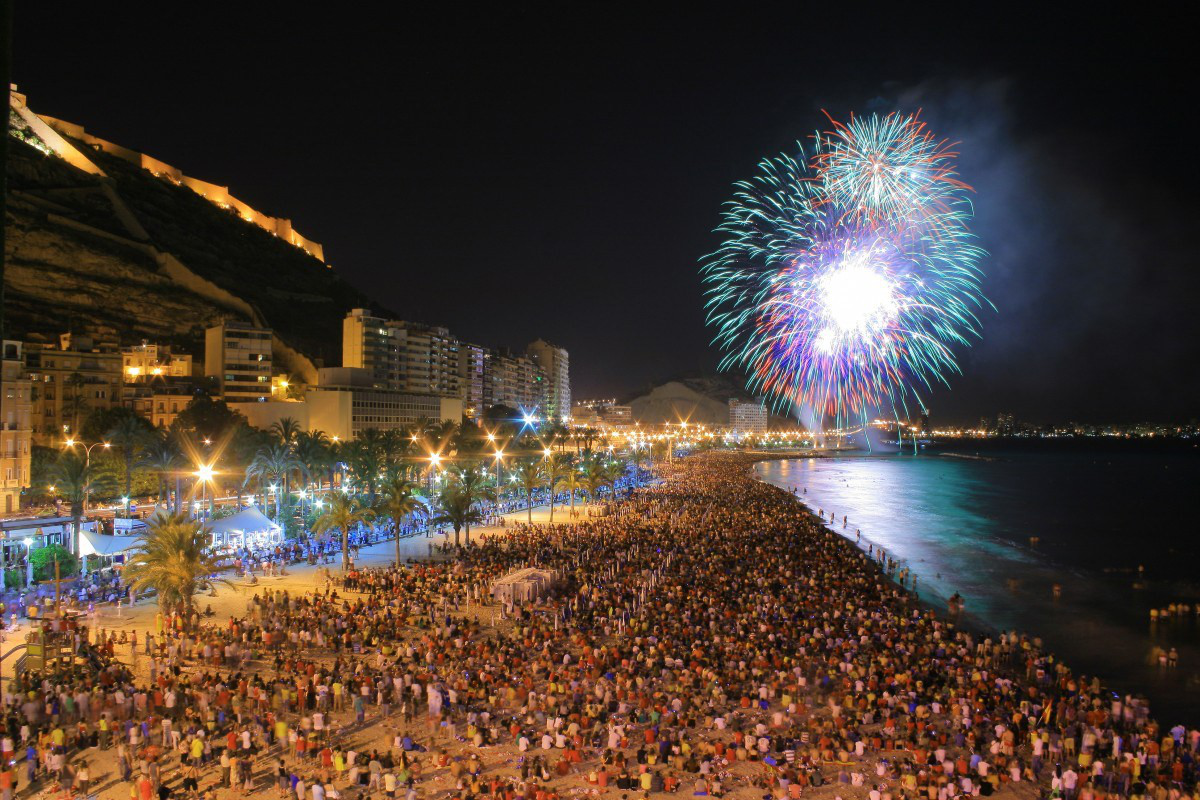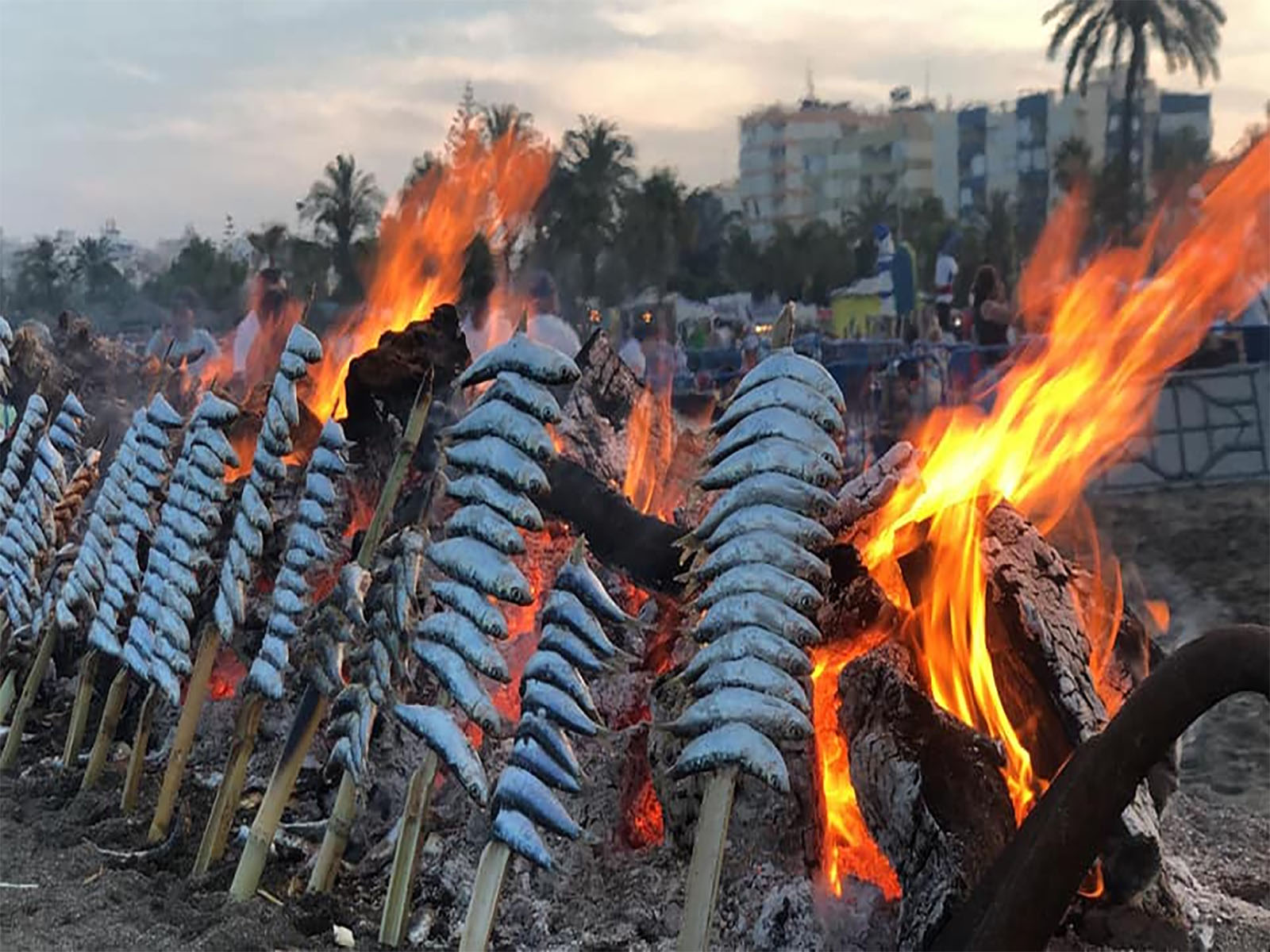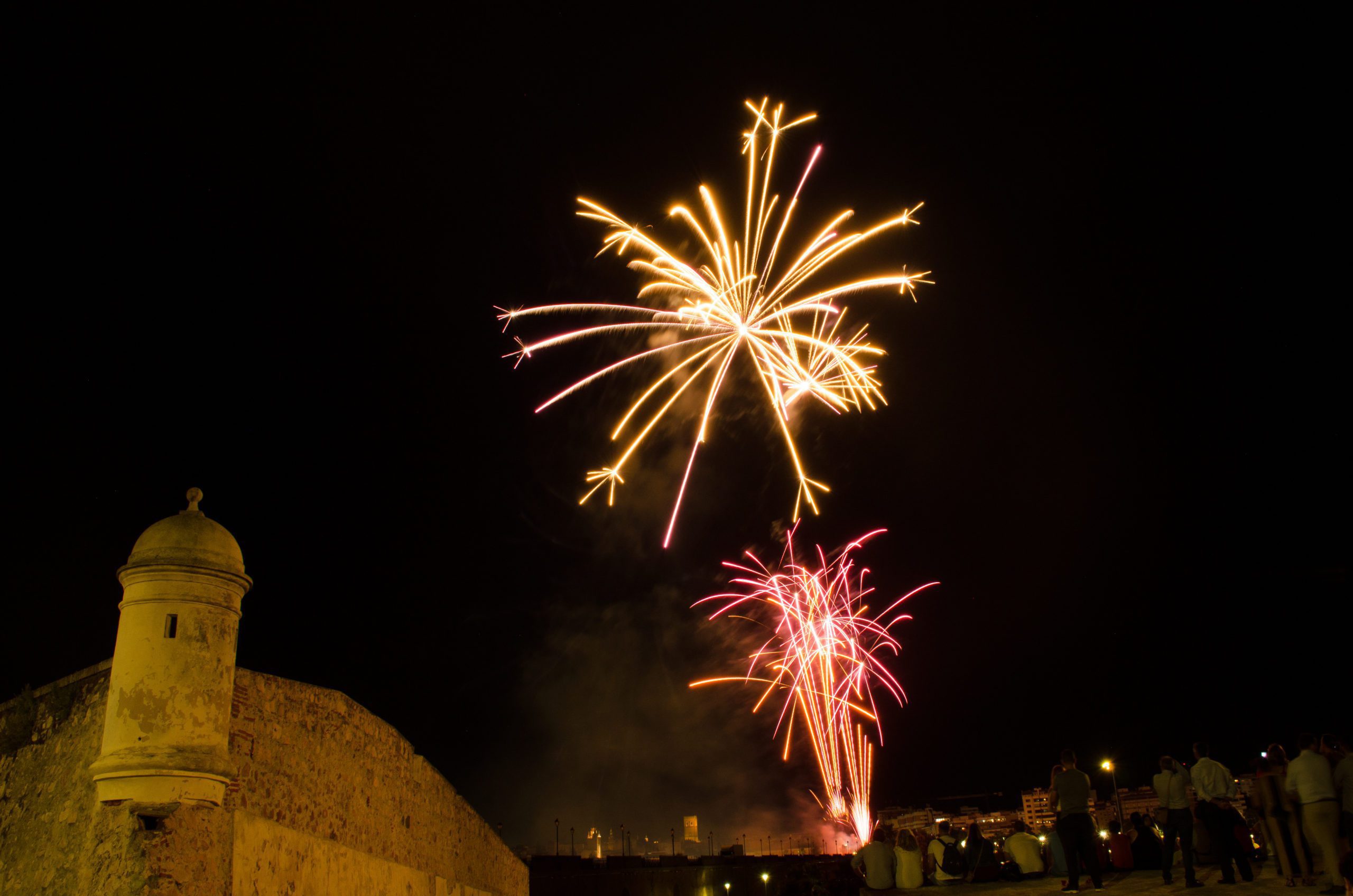|
Embrace the Flames and Fortune: Your Expat Guide to San Juan in Spain
Friday, June 6, 2025 @ 9:10 PM
As June descends upon Spain, a palpable excitement fills the air, culminating in one of the country's most enchanting and ancient celebrations: Las Hogueras de San Juan (The Bonfires of Saint John). Marking the summer solstice and the eve of St. John the Baptist's birthday, this magical night on June 23rd offers expats a unique opportunity to immerse themselves in a blend of pagan rituals and Christian traditions.
But what exactly can you expect from this fiery fiesta, and how can you prepare to experience it like a true local? Read on for your essential guide.
What to Expect: A Night of Fire, Water, and Community
San Juan is a nationwide phenomenon, with celebrations varying slightly by region, but the core elements of fire and water remain universal.
- Bonfires (Hogueras/Fogueres/Cacharelas): The undisputed stars of the night. Across beaches, plazas, and even some streets, bonfires of all sizes are meticulously built. These range from small, personal fires where friends and families gather, to enormous, elaborate effigies (particularly in Alicante, where they are true works of art akin to Valencia's Fallas) that are spectacularly burned at midnight. The fires symbolise purification, burning away the old and negative to make way for new beginnings and good luck.
-
Firecrackers and Fireworks: The air crackles with excitement as fireworks light up the sky and firecrackers punctuate the night with loud bangs. In some regions, like Catalonia, you might encounter "correfocs" (fire runs), where costumed "demons" run through the streets with fireworks, creating a dazzling but intense display.
- Water Rituals: As midnight strikes, a wave of revelers often rushes to the sea or rivers. Tradition dictates that dipping your feet, or even taking a full swim, at midnight purifies the soul and body, washing away bad luck. Jumping over seven waves is a particularly popular ritual for good fortune. Some people also wash their face three times at midnight for wishes and good health.

- Community and Merriment (Verbena): San Juan is a deeply social affair. Friends and families gather on beaches, in parks, or even set up tables in the streets for communal dinners. Food, drink, music, and dancing are integral to the celebration, often continuing until the early hours of the morning. Expect a lively, multi-generational atmosphere
- Symbolic Burning: Beyond the main bonfires, many individuals will write down wishes, worries, or things they want to leave behind on pieces of paper and throw them into the flames, or burn old personal items.
- Regional Variations:
- Alicante: The "Fogueres de Sant Joan" is a grand, week-long festival culminating in the burning of massive, artistic bonfires on June 24th, followed by a "banyá" (firefighters hosing down revelers).
- Catalonia (Nit de Sant Joan): Known for its intense beach parties, elaborate firework displays, and the arrival of the "Flama del Canigó" (Canigó Flame) which is used to light many of the bonfires.
- Galicia: Celebrates with "cacharelas," roasted sardines, and the tradition of gathering "herbas de San Xoán" (San Juan herbs) to leave in water overnight for a purifying wash the next morning.
- Malaga: Often features the burning of "júas," rag dolls representing negative aspects of the past year.
How to Prepare: Your Expat Checklist
To truly enjoy San Juan, a little preparation goes a long way.

-
Choose Your Location Wisely:
- Big Cities (Barcelona, Valencia, Alicante, Malaga): Offer large, organized celebrations, often with major firework displays and concerts. Expect huge crowds.
- Smaller Coastal Towns: Provide a more intimate, local experience, with families gathering on the beach with their own bonfires.
- Inland Towns: Some inland towns also have bonfires and festivities, often with a more traditional, less beach-focused vibe.
- Consider visiting a local tourism office or checking municipal websites for specific program details in your chosen area.
-
Dress for the Occasion (Comfort and Safety First!):
- Comfortable, Closed-Toe Shoes: Absolutely essential. You'll be walking a lot, often on sand or uneven ground, and near fires. Avoid sandals.
- Old Clothes: Wear something you don't mind getting dirty, sandy, or potentially singed. Natural fibres like cotton are preferable to synthetics, which can melt.
- Long Sleeves/Hood (Optional but Recommended): Especially if you plan to get close to the bonfires or fire runs, a light long-sleeved top or a hoodie can offer some protection from sparks and heat.
- Swimsuit and Towel: If you plan to partake in the midnight swim!
-
Pack Your Essentials:
- Food and Drinks: Many locals bring picnic dinners to the beach or set up street tables. Pack a cooler with snacks, drinks (water is key!), and perhaps some coca de Sant Joan (a traditional sweet bread, often with candied fruit and pine nuts).
- Blankets/Chairs: To comfortably stake out your spot, especially on the beach.
- Earplugs/Headphones: Especially important if you're sensitive to loud noises, as firecrackers can be constant and intense. Essential for children and pets.
- Eye Protection: If you plan to get close to firework displays or correfocs, consider glasses or a mask.
- Rubbish Bags: Be a responsible reveller and take all your rubbish with you. Local authorities often put out extra bins, but beaches can get very messy if not respected.
-
Safety First!
- Fires are Hot: Maintain a safe distance from bonfires. Do not jump over large bonfires unless you are confident and aware of the risks. Never use flammable liquids to light fires.
- Firecrackers are Dangerous: Do not handle fireworks or firecrackers if you are not experienced, and always follow local guidelines. Keep them away from your body, face, and other people. Never put them inside objects like bottles or bricks.
- Crowds: Be aware of your surroundings, especially in very crowded areas. Keep an eye on your belongings to prevent pickpocketing.
- Children and Pets: Supervise children closely. Keep pets indoors or in a quiet, safe space as the noise and fires can be very distressing for them.
- Alcohol: Drink responsibly. San Juan is a long night, and excessive alcohol can impair judgment, especially around fire.
-
Transportation:
- Public Transport: Expect significant crowds and potential road closures, especially near popular celebration spots. Public transport often runs extended or special services, making it the best option. Check local transport websites for updated schedules.
- Parking: Avoid driving to popular areas if possible; parking will be scarce.
-
Embrace the Spirit:
- Participate: Don't be afraid to join in the rituals. Jump over a small bonfire (safely!), dip your feet in the sea at midnight, or simply enjoy the communal meal.
- Be Patient: With large crowds, things might move slower than usual. Embrace the relaxed Spanish pace.
- Enjoy the Magic: San Juan is a night brimming with ancient symbolism and joyful energy. Let yourself be swept up in the atmosphere and celebrate the arrival of summer in true Spanish style.

San Juan is more than just a party; it's a deeply ingrained cultural experience that offers a unique glimpse into Spanish traditions. By understanding what to expect and preparing accordingly, expats can ensure a memorable and safe night of fire, water, and celebration under the Spanish stars. ¡Feliz Noche de San Juan!
0 Comments
Only registered users can comment on this blog post. Please Sign In or Register now.
|
|